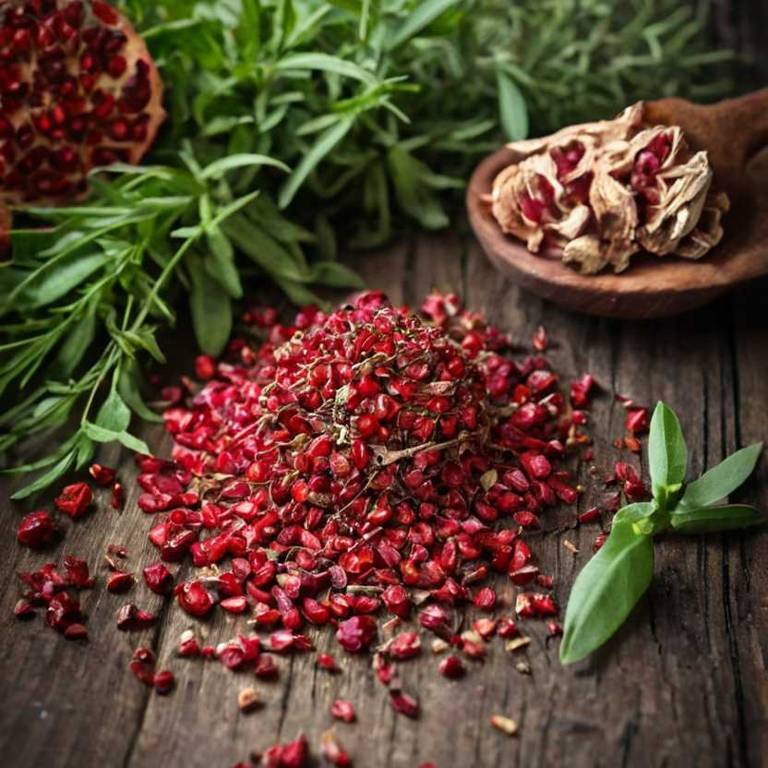Pomegranate
Punica granatum
Ashwagandha is a prominent medicinal herb in Ayurvedic medicine, classified as a rasayana (rejuvenator). It is primarily utilized as an adaptogen to help the body manage physical and chemical stress.
Family
Solanaceae (Nightshade)
Native Region
India, Middle East, Africa
Part Used
Root, Leaf, Berry

Botanical Identification
Pomegranate, scientifically known as Punica granatum, belongs to the family Lythraceae. It is a deciduous shrub or small tree native to the Mediterranean region. Common names include "anar" in India and "pomegranate" in English. The plant has thick, reddish bark, broad leaves, and vibrant red flowers. Synonyms in herbal texts include "granatum" and "pomegranate tree."
Active Compounds
Pomegranate contains key bioactive compounds such as flavonoids, tannins, and phenolic acids, which contribute to its medicinal properties. These compounds work synergistically to provide antioxidant and anti-inflammatory effects, supporting its use in herbal medicine. Their combined action enhances the herb's therapeutic potential.
- Flavonoid
- Tannin
- Phenolic acid
Therapeutic Indications
| System | Condidtion | Action |
|---|---|---|
| Digestive | Diarrhea, gastritis, gastrointestinal ulcers, constipation | Antimicrobial, antacid, anti-inflammatory, laxative |
| Integumentary | Wound healing, skin infections, acne, hemorrhoids | Antioxidant, antimicrobial, anti-inflammatory, astringent |
| Immune | Inflammation, cancer | Anti-inflammatory, antioxidant |
Preparation Methods
Decoction: Used for digestive issues and inflammation due to its anti-inflammatory and astringent properties.
Infusion: Used for respiratory conditions like coughs and colds due to its expectorant properties.
Poultice: Used for skin ailments and wounds due to its antimicrobial and healing properties.
Safety Profile
Pomegranate is generally safe when consumed in typical food amounts. However, it may cause allergic reactions in some individuals. It is contraindicated in those with known allergies to the fruit or its derivatives. Always consult a healthcare provider before using pomegranate for medicinal purposes.